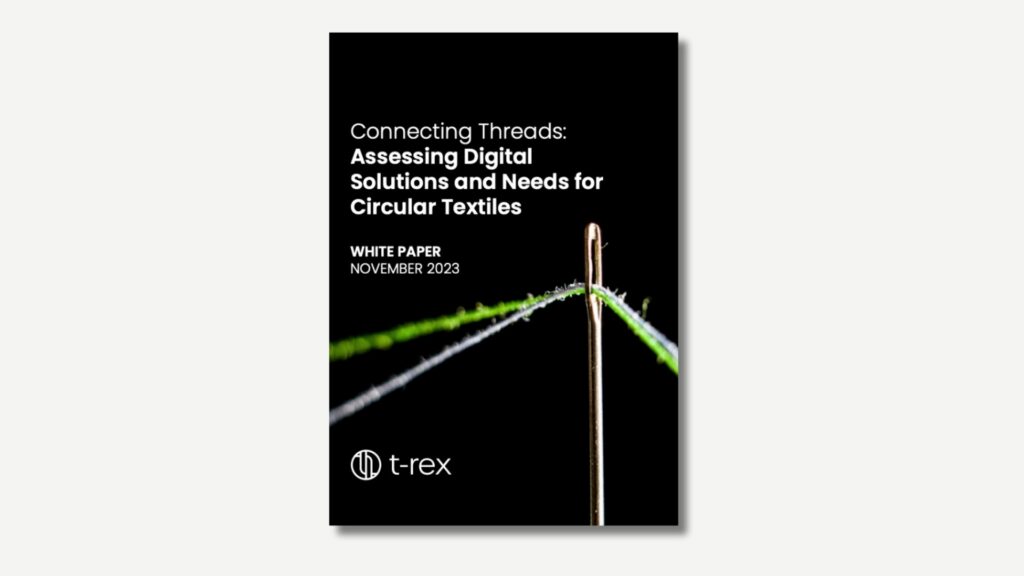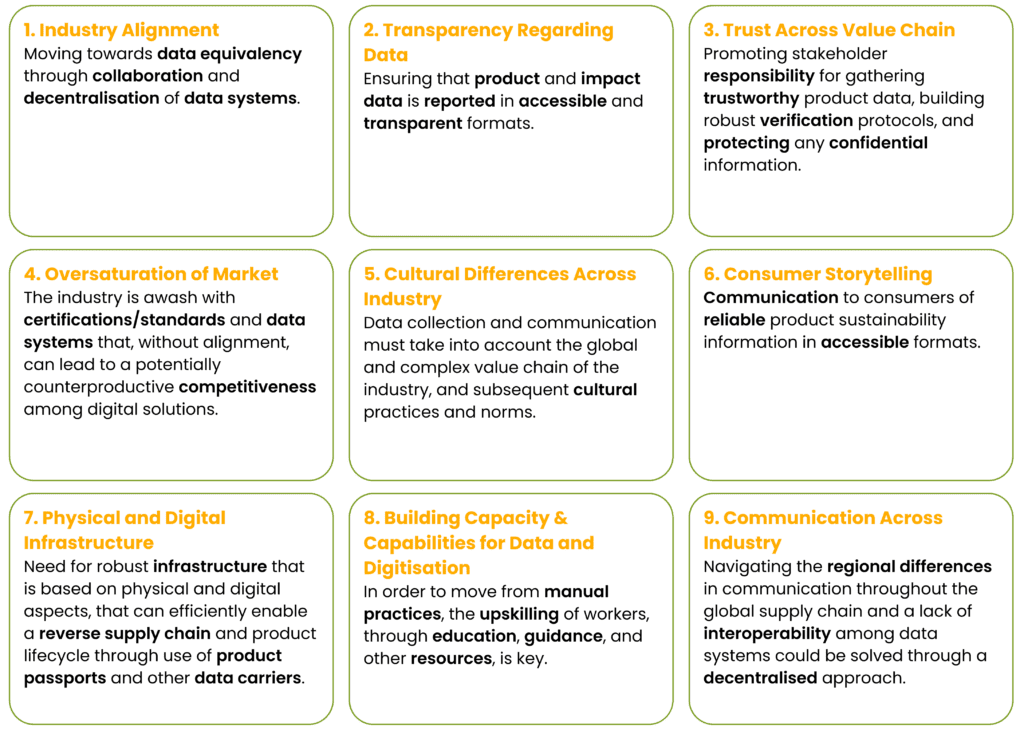
The textile industry has a significant environmental impact and urgently needs effective solutions in end-of-use management strategies. A digital transformation is required to enable this, ensuring enhanced data integrity and management, efficiency, scalability, and system improvement. Digital solutions can benefit the industry by streamlining processes, increasing transparency, facilitating collaboration and data-driven decision making, and promoting sustainability. However, challenges exist in transparency and standardisation of data structures and platforms which must be addressed for effective implementation of sustainable tools.
Our T-REX Project partners have conducted an extensive analysis of primary and secondary data to identify gaps and opportunities for digital solutions in circular textile value chains. The analysis initially focused on three key segments, including Waste Mapping, Supply Chain Traceability, and Digital Product Passports.
As a result, nine key overarching themes have been identified:

In addition, the report emphasises that all nine themes are enabled by legislation, compliance, certifications, technology adoption, financial investment, and human resources. Further highlighting that collaboration and alignment among all parties is also vital for the industry to make progress.
Finally, the report concludes with recommendations for all key stakeholders, including waste aggregators and recyclers, policymakers, brands, and digital solution providers, to help foster collective progress of the industry.
Head here to download the full Connecting Threads: Assessing Digital Solutions and Needs for Circular Textiles white paper.